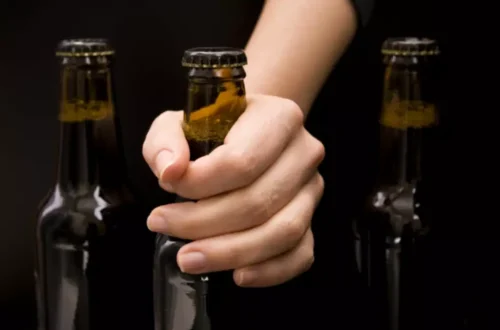
They can help you develop coping strategies to manage the feelings you experience surrounding this. While genes can’t cause dissociative amnesia on their own, they can lower the threshold for it to happen. That means a person with a family history of dissociative amnesia may develop it blackout (drug-related amnesia) treatments with fewer contributing factors. Experts think that multiple factors can increase the risk of developing dissociative amnesia. That’s partly because the risk is cumulative, meaning it goes up when a person has more risk factors. When the trauma is longer-lasting, repeated or more severe, that usually makes this condition worse.
Blackouts: State-Dependent Memory Formation?
White pixels are pixels in which the cell fired at very low rates, and darker colors represent higher firing rates (see key to the right of figure). As is clear from a comparison of activity during baseline and 45 to 60 minutes after alcohol administration, the activity of the cell was essentially shut off by alcohol. Neural activity returned to near normal levels within roughly 7 hours after alcohol administration. During the first half of the 20th century, two theoretical hurdles hampered progress toward an understanding of the mechanisms underlying the effects of alcohol on memory. More recent research has cleared away these hurdles, allowing for tremendous gains in the area during the past 50 years.
Finding Treatment for Alcohol Addiction

It may be possible, however, to get a strong idea that someone is blackout drunk if they appear unable to remember things that happened at least a few minutes previously. This can indicate that their short-term memories are not being stored, and they are blacking out. Alcohol blackouts are when alcohol completely inhibits your ability to form new memories.
- Moreover, drugs that alter sensory perception, such as hallucinogens, can distort the encoding process, leading to the formation of bizarre or unreliable memories.
- This case was more evidence that the hippocampus is an important part of the brain in remembering past events and that declarative and non-declarative memories have different processes in different parts of the brain.
- Cleveland Clinic’s mental health experts can help you live life to the fullest.
Types of blackouts

If this happens, they will not remember anything that they did while they were drinking. The most obvious factor that contributes to alcohol-related amnesia is the amount of alcohol consumed. If you drink more than your body can metabolize, you risk experiencing a blackout. Unmetabolized alcohol remains in the bloodstream, which is why blood alcohol content (BAC) rises as you continue to consume alcohol. Technically, “blackout” and “brownout” are slang words, not medical terms.

As detailed in this brief review, alcohol can have a dramatic impact on memory. Alcohol primarily disrupts the ability to form new long-term memories; it causes less disruption of recall of previously established long-term memories or of the ability to keep new information active in short-term memory for a few seconds or more. At low doses, the impairments produced by alcohol are often subtle, though they are detectable in controlled conditions. Large quantities of alcohol, particularly if consumed rapidly, can produce a blackout, an interval of time for which the intoxicated person cannot recall key details of events, or even entire events. En bloc blackouts are stretches of time for which the person has no memory whatsoever.

How To Prevent Blackouts

White and Best administered several doses of alcohol in this study, ranging from 0.5 g/kg to 1.5 g/kg. (Only one of the experiments is represented in figure 3.) They found that the dose affected the degree of pyramidal cell suppression. Although 0.5 g/kg did not produce a significant change in the firing of hippocampal pyramidal cells, 1.0 and 1.5 g/kg produced significant suppression of firing during a 1-hour testing session following alcohol administration. The dose-dependent suppression of CA1 pyramidal cells is consistent with the dose-dependent effects what is alcoholism of alcohol on episodic memory formation. The difference between a brownout and a blackout is that brownouts involve partial memory loss.
